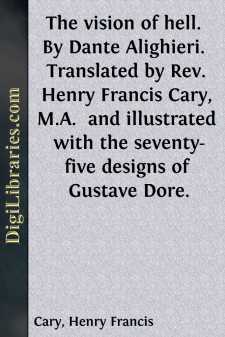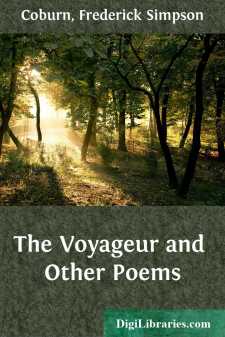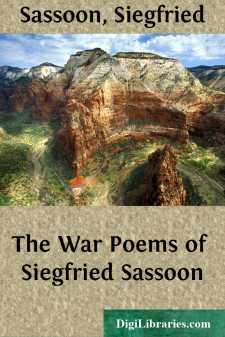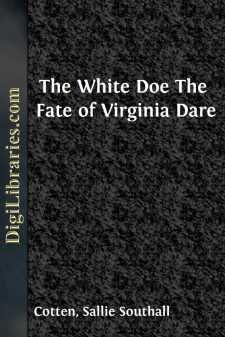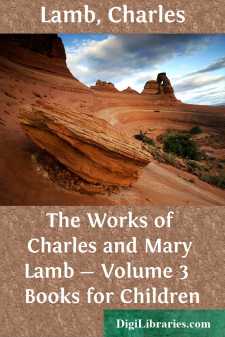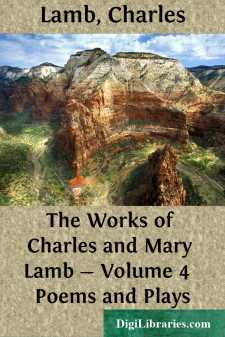Poetry Books
Sort by:
CANTO I IN the midway of this our mortal life,I found me in a gloomy wood, astrayGone from the path direct: and e'en to tellIt were no easy task, how savage wildThat forest, how robust and rough its growth,Which to remember only, my dismayRenews, in bitterness not far from death.Yet to discourse of what there good befell,All else will I relate discover'd there.How first I enter'd it I...
more...
LIFE OF LOWELL In Cambridge there are two literary shrines to which visitors are sure to find their way soon after passing the Harvard gates, "Craigie House," the home of Longfellow and "Elmwood," the home of Lowell. Though their hallowed retirement has been profaned by the encroachments of the growing city, yet in their simple dignity these fine old colonial mansions still bespeak the...
more...
The Voyageur Dere's somet'ing stirrin' ma blood tonight,On de night of de young new year,Wile de camp is warm an' de fire is bright,An' de bottle is close at han'—Out on de reever de nort' win' blow,Down on de valley is pile de snow,But w'at do we care so long we knowWe 're safe on de log cabane? Drink to de healt' of your wife an'...
more...
I PRELUDE: THE TROOPS Dim, gradual thinning of the shapeless gloomShudders to drizzling daybreak that revealsDisconsolate men who stamp their sodden bootsAnd turn dulled, sunken faces to the skyHaggard and hopeless. They, who have beaten downThe stale despair of night, must now renewTheir desolation in the truce of dawn,Murdering the livid hours that grope for peace. Yet these, who cling to life with...
more...
by:
Henry Van Dyke
LEGEND Long ago Apollo called to Aristaeus, youngest of the shepherds, Saying, "I will make you keeper of my bees." Golden were the hives, and golden was the honey; golden, too, the music, Where the honey-makers hummed among the trees. Happy Aristaeus loitered in the garden, wandered in the orchard, Careless and contented,...
more...
FORGOTTEN FACTS AND FANCIESOF AMERICAN HISTORY AS civilization advances there develops in the heart of man a higher appreciation of the past, and the deeds of preceding generations come to be viewed with a calm criticism which denudes those deeds of false splendor and increases the lustre of real accomplishment. Man cannot see into the future and acquire the prescience of coming events which would make...
more...
1. How, my dear Mary,—are you critic-bitten (For vipers kill, though dead) by some review, That you condemn these verses I have written, Because they tell no story, false or true? What, though no mice are caught by a young kitten, _5 May it not leap and play as grown cats do, Till its claws come? Prithee, for this one time, Content thee with a visionary rhyme. 2. What hand would crush...
more...
by:
Anonymous
"Pray, what would you like?" said a Toyman, one day,Addressing a group of young folks,"I have toys in abundance, and very cheap, too,Though not quite so cheap as my jokes."Here's a famous managerie, full of wild beasts;See! this lion with wide open jaws,Enough to affright one, and yet I've no doubt,You might venture to play with his claws."Here's a tiger as tame as a...
more...
by:
Charles Lamb
THE TEMPEST (By Mary Lamb) There was a certain island in the sea, the only inhabitants of which were an old man, whose name was Prospero, and his daughter Miranda, a very beautiful young lady. She came to this island so young, that she had no memory of having seen any other human face than her father's. They lived in a cave or cell, made out of a rock: it was divided into several apartments, one...
more...
by:
Charles Lamb
INTRODUCTION The earliest poem in this volume bears the date 1794, when Lamb was nineteen, the latest 1834, the year of his death; so that it covers an even longer period of his life than Vol. I.—the "Miscellaneous Prose." The chronological order which was strictly observed in that volume has been only partly observed in the following pages—since it seemed better to keep the plays together...
more...


